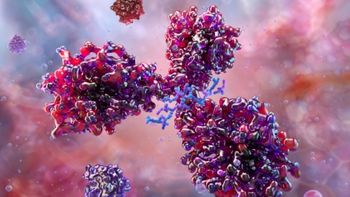
- BioPharm International-06-01-2020
- Volume 33
- Issue 6
Understanding Commercial Cell Culture Process Performance Variation Through Advanced Data Analytics
Advanced data analytics, including statistical modeling and machine learning technique, can enable more efficient and reliable bioprocesses.
Continued process verification is one of the required stages of process validation, which necessitates a documented process and product monitoring program. During routine process and product monitoring, one commercial process (process A) demonstrated higher process variation compared to other commercial products manufactured at the same site. Advanced data analytics, including statistical modeling and machine learning technique, was applied to further understand the process variation in cooperation with a consultant company (McKinsey/Quantum Black). A cross-functional team composed of data engineers, data scientists, bioprocess experts, and translator/project manager was formed and worked together for approximately six months. The analysis consolidated disparate data sources, including information from raw material, equipment, process information, environment, human, etc. Data engineering technique, modeling methodology, and model insights are shared. The importance of building advanced data analytics capabilities to enable more efficient and reliable bioprocesses is discussed.
Peer-reviewed
Submitted: Jan. 24, 2020
Accepted: April 8, 2020
About the authors
Jun Luo*, luo.jun@gene.com, is senior manager, and Sid Kundu is engineer II; both are at Manufacturing Sciences, Genentech, Vacaville, CA. Yiming Peng is principal statistical scientist at Non Clinical Biostatistics, Genentech, South San Francisco, CA. Jesse Bergevin is associate director at Process Engineering, Genentech, Vacaville, CA.
*To whom all correspondence should be addressed
Article Details
BioPharm International
Vol. 33, No. 6
June 2020
Pages: 24–31
Citation
When referring to this article, please cite it as J. Luo, et al., “Understanding Commercial Cell Culture Process Performance Variation Through Advanced Data Analytics,” BioPharm International 33 (6) 2020.
Articles in this issue
over 5 years ago
Following Guidelines During a Crisisover 5 years ago
Finding New Efficiencies in Clinical Trial Logisticsover 5 years ago
2019 Investments Centered around Cell and Gene Therapiesover 5 years ago
What’s Next in Air Transportationover 5 years ago
Are We All In This Together?over 5 years ago
New Tools Facilitate Automated Process Controlover 5 years ago
Plasma-Based Antibody Therapies Battle Against COVID-19over 5 years ago
The Role of Incubators in Cell and Gene Therapy Developmentover 5 years ago
Good Manufacturing Practices: Challenges with Complianceover 5 years ago
Challenges, Tools, and Strategies for Data Integrity ProtectionNewsletter
Stay at the forefront of biopharmaceutical innovation—subscribe to BioPharm International for expert insights on drug development, manufacturing, compliance, and more.




